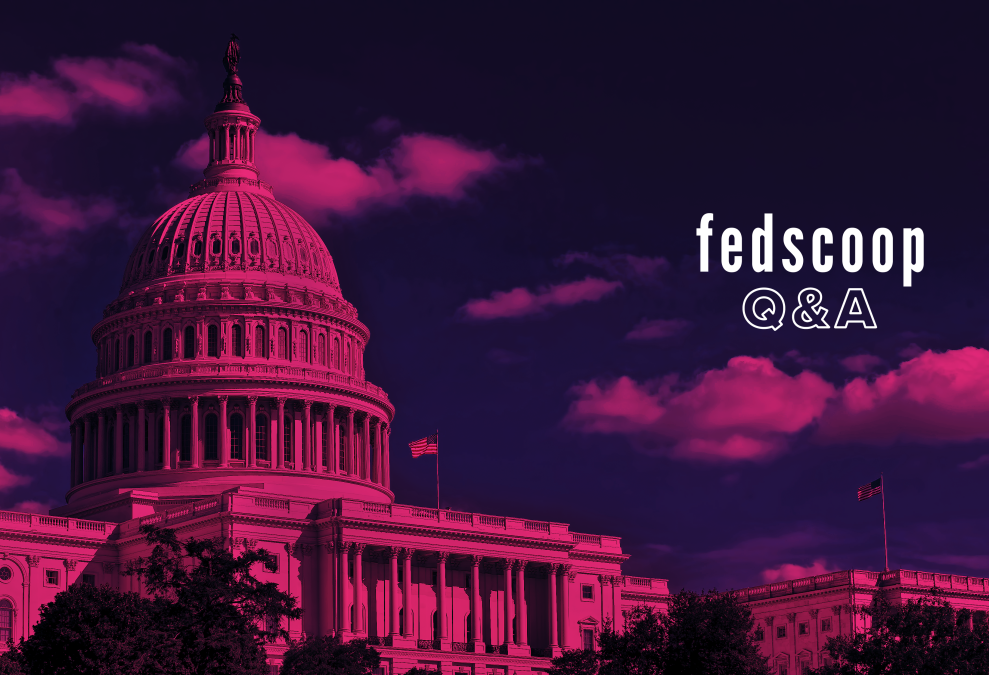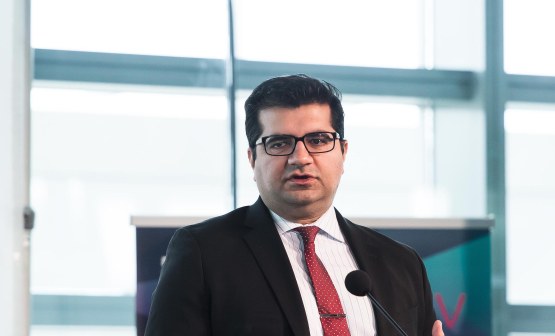Login.gov head Joel Minton says staying still is more risky than innovating

Joel Minton thinks you should take the plunge.
Yes, he knows that trying something novel can seem scary. But he’d argue that rolling out a good new product is actually less risky than maintaining a subpar status quo. Think about it.
 Of course, it benefits Minton if federal agencies are more willing to try out new solutions. As the director of the federal single sign-on project login.gov, one of Minton’s jobs is to convince additional agencies to join the initiative. So far the software is being used in four places — the Customs and Border Protection jobs app, the CBP Outlying Areas Reporting System app, the CBP Trusted Traveler Program, and a U.S. Digital Service internal tool.
Of course, it benefits Minton if federal agencies are more willing to try out new solutions. As the director of the federal single sign-on project login.gov, one of Minton’s jobs is to convince additional agencies to join the initiative. So far the software is being used in four places — the Customs and Border Protection jobs app, the CBP Outlying Areas Reporting System app, the CBP Trusted Traveler Program, and a U.S. Digital Service internal tool.
We chatted with Minton for a FedScoop Q&A— a series of interviews with top federal IT executives.
Editor’s note: The transcript has been edited for clarity and length.
FedScoop: Briefly, what do you find is the most critical part of your job right now?
Joel Minton: To be frank my number one job is to remove roadblocks that my team encounters. In any company or organization, there’s always roadblocks that stop teams from delivering improvements and great experiences. My job is to find all of those places where those roadblocks come up for my teams and to remove them as quickly as possible.
I also work a lot with agencies to help them understand how they might leverage login.gov and how they might think about identity in general — not just login.gov.
So those two aspects of my job are the two that I find the most critical, but I would say that removing roadblocks is my No. 1 priority.
FS: What is the biggest topic in federal technology right now? Explain.
JM: Security I think is No. 1 across everyone’s mind. I think having highly secured systems and making sure that the government is building secure solutions is very important.
But I would argue that shared services are also extremely important. Right now in government, we’re solving the same problems over and over again in dozens of agencies and our ability to share those solutions — whether they be technical, acquisition-related, process-related — should be where we focus to make sure that we can create great citizen and agency experiences.
FS: What challenges keep you up at night?
JM: There’s really two at a high level. I would say hiring is a big challenge. We can always use more people, especially devops engineers, application engineers, designers. On the build side we need to build more automation, we need to build better experiences and you need more people to do that. So that’s one of the biggest challenges that I have to constantly work at.
Secondly, security. We spend a lot of time increasing security. But even though we’ve done that, and we feel like we’ve done a good job, I constantly worry about security and the different ways it can be breached. There are many bad actors who are trying to break into systems of all kinds, and so we need to make sure that we continue to put budget and resources to ensure that our users data stays private.
We also leverage an open source code base to try to increase security. That open source code base allows security experts to give us feedback on our security algorithms which helps us improve things even more over time.
FS: How can the U.S. government do a better job with federal IT? What is needed?
JM: I think it’s really figuring out the right places to build partnerships and to keep building bridges between us and industry. There’s so many times that people say that it’s us or them, it’s industry or government. I don’t really see it that way. I see it as a partnership and one where people in federal IT need to keep leveraging best-in-class solutions from industry.
And I also think that government employees need to be exposed to the latest tech out there. I think that there’s all kinds of new technology that’s constantly being delivered and we need to allow our government employees to leverage that new technology whether it be in experimentation mode, or getting out and implementing things.
FS: What advice do you have for others working in federal IT?
JM: This one I’m pretty passionate about, because I see it over and over again. I think people think that staying still or staying with the current solution is less risky than rolling out new things, and I would argue that that is not the case at all.
Staying still is actually more risky in many situations because your adversaries, bad guys, other people are constantly evolving their solutions. And if you’re not evolving your solution with them you will not stay as far ahead as you need to. That’s true with security, but it’s also true just in general with creating highly usable systems.






